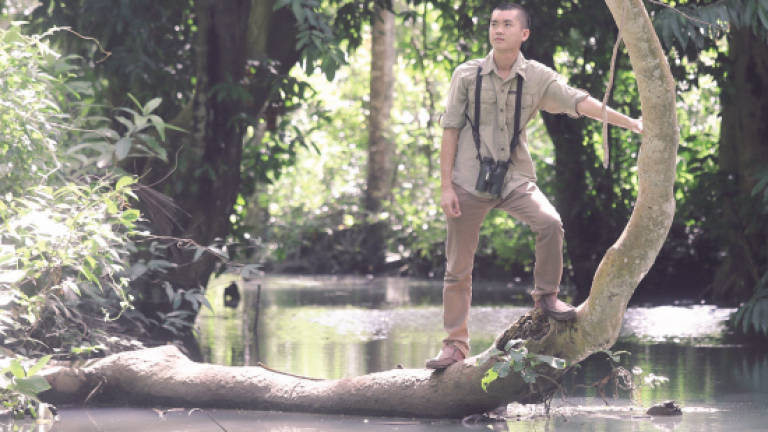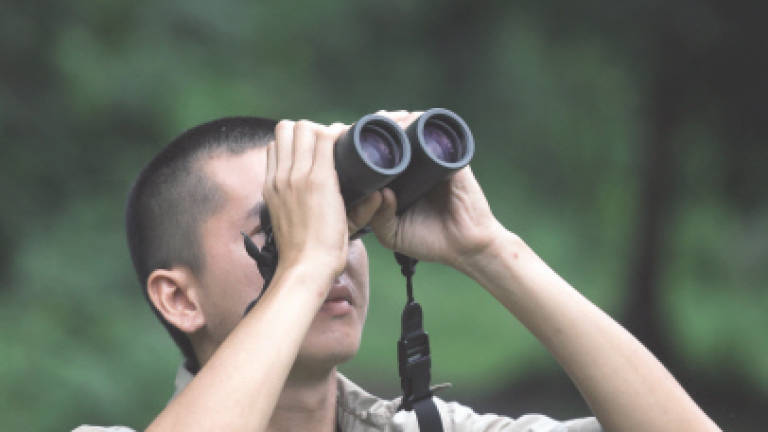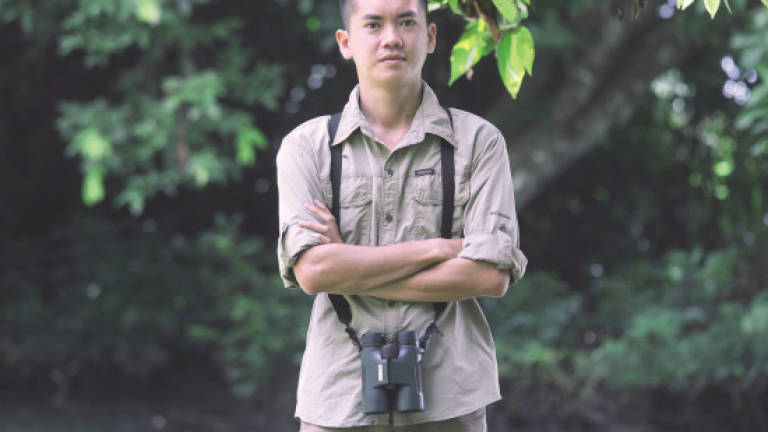Growing his roots



PERLIS boy Mohd Ros Effendi, or more fondly known as Fendi never had an academic background in science or nature studies. Yet, today he stands as a naturalist in JungleWalla, a tour agency that focuses on Malaysia’s nature, wildlife, and birds.
In fact, Fendi actually studied management in college and went on to be an account and administrative executive. Another change of job later, and he applied to join JungleWalla in October 2014.
“The main reason I wanted to join them is because they have a respect for nature,” said the 27-year-old.
Tell us how you started out.
When I first started, my position was not a naturalist, but a tour receptionist. For every new employee in JungleWalla, they are required to follow every tour offered by them.
During the first week of training, I followed Irshad Mobarak, a well-known naturalist in Malaysia and also the founder of JungleWalla. I was so interested with the things he spoke about when he led the tour, and at the time I hoped to do what he did – to share knowledge about nature with people.
What spurred you to join JungleWalla and later become a naturalist?
I was always interested in the environment as a child because I grew up in a village in Perlis and was surrounded by nature. Whenever I went out to play in the garden, I would look at the birds and wonder what they were called. I’d search for their names in books, and I did the same with other animals too.
I also enjoyed watching National Geographic, Animal Planet, and Crocodile Hunter. I truly admired the late Steve Irwin. I wanted to be just like him, educating people about nature. But at the time, I thought that it was no more than just a dream, until I joined JungleWalla and Irshad told me in person that he would train me to be a naturalist. It was a dream come true!
What do you aim to achieve from becoming a naturalist?
Of course, for every naturalist in Malaysia, they would want to educate people about nature. Even I myself would want everybody to know more about the nature in our country. But the most important thing I want is for us to realise that we have to depend strongly on our natural environment to survive as a human species.
I’m not trying to say that the economy itself is not important, but we need to ensure that everything is in balance. The best example is the mangrove forest experiment where Hiraishi and Harada (2003) used a model simulation to suggest that a 90% reduction in maximum tsunami flow pressure is possible in a healthy mangrove forest.
From there, we can see how important nature is, and that’s what I’m trying to do so more people can appreciate nature.
Did you have any particular moments during your time as a naturalist that stayed in your memory?
The best moment for me was when I took two tourists for a two-day birdwatching trip in Langkawi.
On the second day, they requested to see the Great Hornbill, which is the largest bird in Langkawi. The tip of its beak to the tail can go up to 1.2 metres long!
We spent over an hour searching for the bird to no avail, and they nearly gave up. On the way back, I suddenly heard the call of the bird and immediately asked the driver to stop our van.
I got out and was speechless; over 70 Great Hornbills gathered in one area, making loud calls to each other. It was that moment that I believe it is possible for us humans to adapt ourselves to live harmoniously with nature.
How does it feel to be in an industry that is significantly different compared to your peers?
The challenge of being a naturalist is that I don’t really have time with my friends. But I’m glad that my friends understand my passion, and how being in this industry means I constantly have to spend my time going out to understand more about the environment.
Right now, I’m trying to get details of flora and fauna in Perlis. I would love for the state to be a tourist destination as it is a great place for nature. Hopefully, I can be a naturalist in my birthplace.